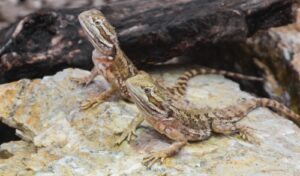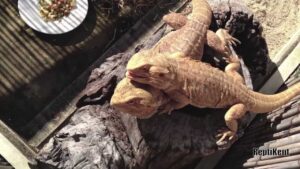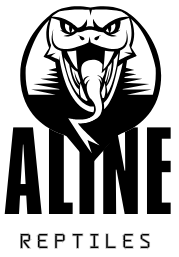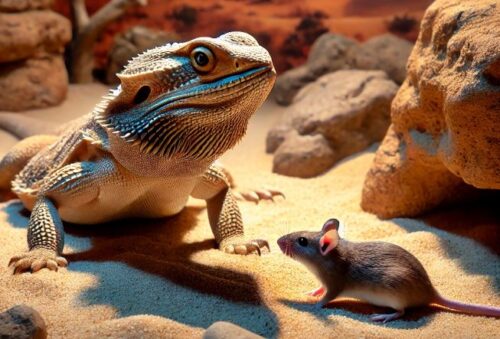Bearded dragons are one of the most popular pet reptiles, known for their calm demeanor, interactive nature, and fascinating behavior. As an owner, one of your top priorities is providing the best possible diet to ensure your beardie remains healthy and happy. It’s natural to want to diversify their food options, and sometimes you might wonder, “Can bearded dragons eat mice?”
This article will explore the topic in depth, covering the benefits, risks, and expert opinions to give you all the information you need to make an informed decision. We’ll also discuss alternative foods that might be better suited for your bearded dragon’s diet.
Understanding a Bearded Dragon’s Diet

Before diving into the specifics of whether bearded dragons can eat mice, it’s crucial to understand their natural diet. In the wild, bearded dragons are omnivores, meaning they consume both plant matter and animals. Their diet is varied and typically includes:
- Insects: Crickets, dubia roaches, mealworms, grasshoppers, and other similar bugs are a primary food source for bearded dragons. They provide essential protein, fat, and some vitamins.
- Vegetables: Bearded dragons eat a variety of leafy greens, such as collard greens, dandelion greens, and mustard greens. They also consume other veggies like squash, bell peppers, and carrots.
- Fruits: While fruits should be offered in moderation, beardies enjoy fruits like strawberries, blueberries, and melon as a sweet treat.
- Occasional Small Prey: In the wild, bearded dragons may occasionally eat small rodents, lizards, or even the odd bird or egg. However, these food items are much rarer in their natural diet and are typically eaten only when available.
Nutritional Profile of Mice
Mice, particularly pinky mice (newborn mice), are often considered a high-protein food source for many reptiles. Here’s a quick breakdown of their nutritional profile:
- Protein: Mice are packed with protein, which is essential for growth, tissue repair, and muscle development in reptiles.
- Fat: Mice contain a significant amount of fat, especially compared to insects. This fat is a concentrated energy source but can be problematic if consumed in excess.
- Calcium: Mice provide a good amount of calcium, an essential mineral for maintaining healthy bones and preventing metabolic bone disease (MBD), a common problem in reptiles.
While mice provide protein and calcium, their high-fat content is one of the reasons why they’re not considered a staple food for bearded dragons.
The Benefits of Feeding Mice to Bearded Dragons
There are some potential benefits to feeding your bearded dragon mice in specific circumstances:
High Protein and Fat Content
For bearded dragons that are underweight, pregnant, or recovering from an illness, the extra fat and protein from mice can help provide the nutrients they need for recovery. Mice offer a quick, calorie-dense food source that can boost energy levels and help with muscle and tissue regeneration.
Calcium for Bone Health
As mentioned earlier, mice contain calcium, which is beneficial for bone health. Bearded dragons, especially those that are growing rapidly or breeding, need extra calcium to maintain strong bones. Pinky mice can provide this in a way that other food items might not.
The Risks and Concerns of Feeding Mice
Despite the potential benefits, feeding mice to bearded dragons carries several risks and concerns that should not be ignored.
1. High Fat Content
One of the biggest concerns about feeding mice to bearded dragons is their high-fat content. Mice contain significantly more fat than the typical insects that are part of a bearded dragon’s natural diet. If fed regularly, the excess fat can lead to obesity, which can cause long-term health problems such as:
- Decreased mobility
- Heart problems
- Liver issues
- Increased stress on internal organs
Obesity can also lead to other health complications, including a decreased lifespan.
2. Risk of Impaction
Bearded dragons are not used to consuming prey with fur, bones, and tougher tissues. Feeding them mice could result in impaction, a condition where food or waste becomes lodged in the digestive tract, leading to constipation, bloating, and pain. Impaction is potentially fatal if left untreated, and it’s often a result of feeding food that’s too large or difficult to digest.
3. Parasites and Disease
Mice, like other live prey, can carry parasites and diseases. Feeding your bearded dragon a live or poorly prepared mouse can introduce these harmful organisms into your pet’s digestive system. This could lead to serious health issues, including gastrointestinal infections or internal parasites.
4. Stress and Injury from Live Mice
If you choose to feed live mice, there’s also a risk of stress and injury. Live prey, such as mice, may bite or scratch your bearded dragon, leading to wounds or infections. The stress of hunting and killing prey can also harm your dragon’s mental well-being.
5. Nutrient Imbalance
Feeding mice regularly can lead to an imbalance in the bearded dragon’s overall nutrition. While mice offer protein and calcium, they lack the vitamins, minerals, and fiber found in the variety of insects and vegetables your pet should eat. Over time, relying on mice could cause deficiencies in other essential nutrients.
Expert Opinions and Recommendations
Most reptile experts, including veterinarians and experienced breeders, recommend against feeding mice to bearded dragons on a regular basis. The risks outweigh the potential benefits, especially considering the wide range of more appropriate food options that provide balanced nutrition.
While an occasional pinky mouse might not harm your dragon, it should be seen as a treat or supplement rather than a staple part of their diet. The consensus is that insects, such as crickets, roaches, and mealworms, are far more suitable for a bearded dragon’s regular diet.
Safer Alternatives to Mice for Protein and Calcium

If you’re looking to offer your bearded dragon a protein and calcium boost without the risks associated with mice, consider these healthier alternatives:
Insects
- Crickets: A staple in many bearded dragon diets, crickets are an excellent source of protein and are widely available.
- Dubia Roaches: These are highly nutritious, easy to digest, and provide a good amount of protein and calcium.
- Hornworms: Rich in protein, low in fat, and a good source of moisture, hornworms are an excellent option for hydration and nutrition.
- Silkworms: These worms are rich in protein, calcium, and vitamins, making them a great choice for your pet’s diet.
Vegetables and Greens
- Collard Greens: A highly nutritious green packed with vitamins and minerals, perfect for a bearded dragon’s salad.
- Mustard Greens: Another excellent source of calcium and fiber.
- Butternut Squash: Rich in fiber and antioxidants, great for digestive health.
- Carrots: High in beta-carotene, which converts to vitamin A for healthy vision and immune function.
Calcium-Dusted Prey
In addition to providing a variety of insects, you can dust your prey with calcium and multivitamin supplements to ensure your bearded dragon is receiving all the essential nutrients. Bearded dragons often need additional calcium to prevent metabolic bone disease, especially during growth spurts or breeding seasons.
Guidelines if You Choose to Feed Mice
If you still decide to feed mice to your bearded dragon, take these precautions to ensure it’s safe and beneficial:
- Choose small pinky mice: These are easier for your bearded dragon to digest than larger mice or adult rats.
- Limit frequency: Offer mice no more than once a month, and never as a regular food source.
- Ensure proper preparation: If you’re feeding frozen mice, thaw them thoroughly and ensure they’re clean and free from parasites.
- Monitor your dragon’s health: Watch for any signs of digestive distress or unusual behavior after feeding mice.
Observing Your Bearded Dragon’s Health
Regardless of what you feed your bearded dragon, it’s crucial to monitor their health closely. Signs of health issues related to diet include:
- Weight loss or lethargy: Could indicate malnutrition or digestive issues.
- Impaired mobility: If your dragon is unable to move properly, it could be a sign of obesity or metabolic bone disease.
- Changes in stool: Diarrhea, constipation, or abnormal droppings can indicate digestive problems.
Conclusion
So, can bearded dragons eat mice? The answer is yes, but with caution. While an occasional pinky mouse might be beneficial for certain bearded dragons, it should never be a regular part of their diet. Mice are high in fat and can pose health risks such as obesity, impaction, and disease.
To ensure a long, healthy life for your bearded dragon, focus on a balanced diet of insects, vegetables, and occasional fruits. Always prioritize the safety of your pet by opting for safer, more nutritious alternatives to mice, and consult your veterinarian for personalized advice.

